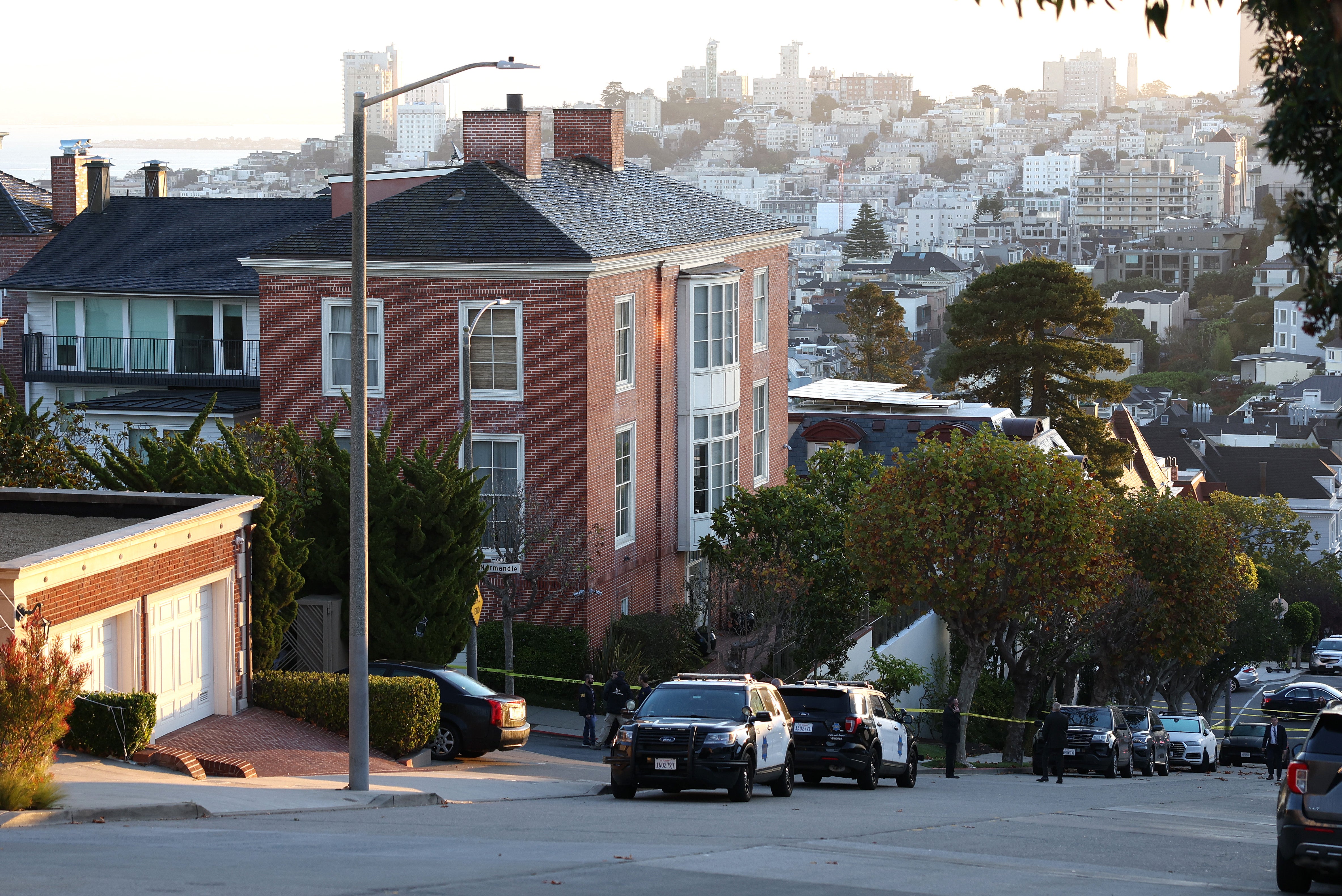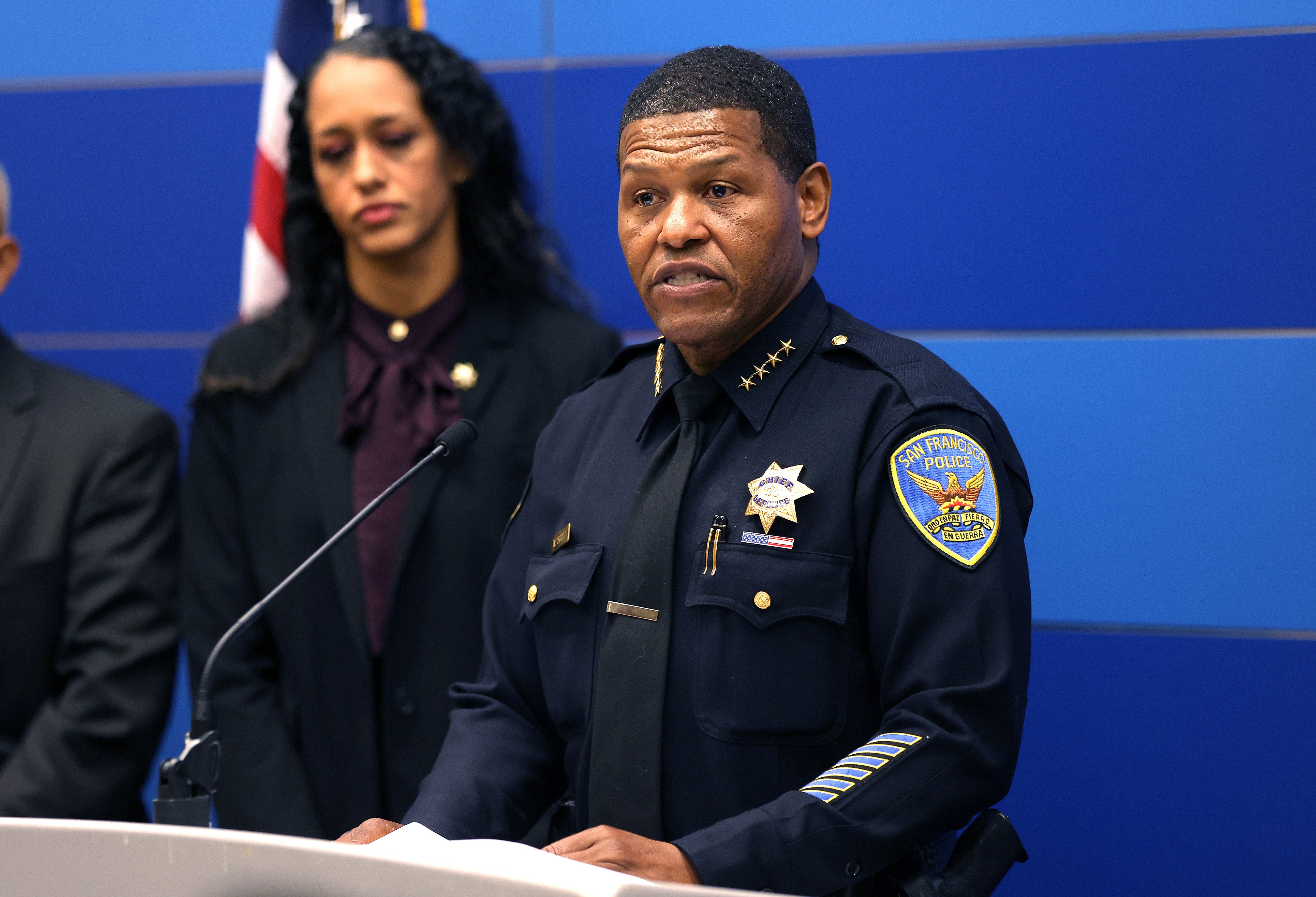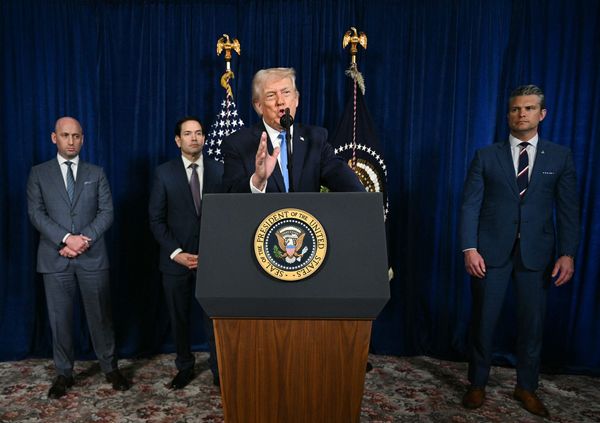
Any political figure, or their partner, or a member of their staff will feel frightened and shaken by the early morning attack at the San Francisco home of speaker Nancy Pelosi, barely a fortnight before the nation votes in elections that are of great importance. The intruder is reported to have shouted, “Where is Nancy?” while wielding a hammer when he broke into the Pelosi residence in the early hours of the morning. In a press conference on Friday, police identified the suspect as 42-year-old David Depape and said that he would face charges of attempted homicide, “elder abuse, burglary, and several other additional felonies”.
The nation is shocked, for sure. Sickened, too. And sympathy has been extended without caveat for Paul Pelosi, an 82-year-old man now battling for his health in a California hospital. But can anyone say they were truly surprised by this? If so, where have you been?

America has a long, twisting history of political violence that includes the assassinations of four US presidents. The National Archives points out that attempts were also made on the lives of two other presidents, one president-elect, and one ex-president.
The most recent of those was on Ronald Reagan in March 1981, who was shot and nearly killed as he walked back to his limousine after speaking at the Washington DC Hilton. The colours and suit styles of those caught on camera that day can make it feel like old, old history, but it was barely a generation ago.
How much more toxic America’s politics have come since then. How much more abrasive. Even 20 years ago, when George W Bush was a highly controversial figure because of his invasion of Iraq, Democratic and Republican voters could still agree to disagree about politics, and have a drink or dinner together. Just two decades later, families are split and friendships irrevocably ended because of an inability to put aside party politics for the non-political aspects of their relationships.
Americans cannot even agree if the people who attacked the Capitol on 6 January are heroes or seditionists.
Things have become worse, and appear to be escalating further. The Associated Press said that in 2021, Capitol Police investigated around 9,600 threats made against members of Congress.
It feels like an age since that moment in the 2008 presidential election campaign when John McCain politely but firmly rebuked a supporter who shouted out lies about Barack Obama. “No ma’am,” McCain said in response. “He’s a decent family man, a citizen that I just happen to have disagreements with on fundamental issues.”
Social media and the internet in general are certainly responsible for part of this escalation. We are now all familiar with those kinds of young men – and it appears invariably to be men who carry out these acts of political violence – who head down some conspirator rabbithole that results in them driving hundreds of miles and opening fire with a semi-automatic rifle in a pizza restaurant in Washington DC that they’ve come believe is the center of a child abuse scandal overseen by powerful Democrats.
There have been other more serious attacks. In 2011, the Democratic congresswoman Gabrielle Giffords was shot in the head at an event outside a Tucson grocery store. And in 2017, there was a near-fatal attack on Republican congressman Steve Scalise, by someone who allegedly was a supporter of Bernie Sanders. Other, more recent incidents have been perpetrated by alleged supporters of Donald Trump.
Right now, we do not know too much about the precise motives or background of the man who attacked Paul Pelosi. However, David Depap’s social media postings in recent years would suggest that he, too, had been taken up with conspiracies. Reports of him calling out, “Where is Nancy?” on entering the Pelosi home echo the haunting audio recordings made during the 6 January attack on the US Capitol where rioters chanted, “Where are you, Nancy?” and, “Hang Mike Pence.”

Coming on the eve of the midterms, the incident in San Francisco has added more aniexty at a time when the entire nation is on edge about whether there will be threats to poll workers, or efforts in some districts to intimidate people into not voting. There’s no easy way to step back from all of this, to cool people’s heads. But responsibility must lie with political leaders.
America is not the only place where political violence happens – just look to the fatal attacks on two British members of parliament in the past decade – but it is in America where politicians encourage their supporters to chant and boo, and to call “Lock her up!” every time Hillary Clinton’s name is mentioned. It is in America where Republican candidates repeatedly denounce Pelosi as an embodiment of “socialism” – overlooking the reality of a woman who is a multi-millionaire courtesy of American capitalism.
It is true, also, that the likes of Trump and Ted Cruz get their own fair amount of booing and hissing from Democrats. (On Friday, in the aftermath of the attack on Paul Pelosi, many conservatives on social media claimed that when a death threat was made against conservative Supreme Court justice Brett Kavanaugh, parts of the liberal media played it down.)
But it’s hard not to see that the demonisation of the likes of Pelosi – whose name is ironically a major fundraising tactic for Republicans – ensures the intensity reaches a new level.
How can we stop this?
Well, we need our leaders to speak out. We need them to denounce all political violence. But it is not enough to have Joe Biden and Mitch McConnell issue statements of concern. We need politicians from across the spectrum to speak out with their hearts – not least because if this tide of political violence isn’t stemmed, any of them could be next.
And we should stop obsessing about which side of the political aisle one any individual attacker was on. There’s more than enough evidence that this toxicity spills everywhere.
The other person – the most crucial person, if we’re honest – who is vital to any potential healing is Donald Trump. We need the former president to denounce what happened. It does not matter if Trump and Pelosi despise each other – and they very well do – but for the sake of the nation, Trump needs to join those other important voices urging people to cool it. An awful lot depends on it.







